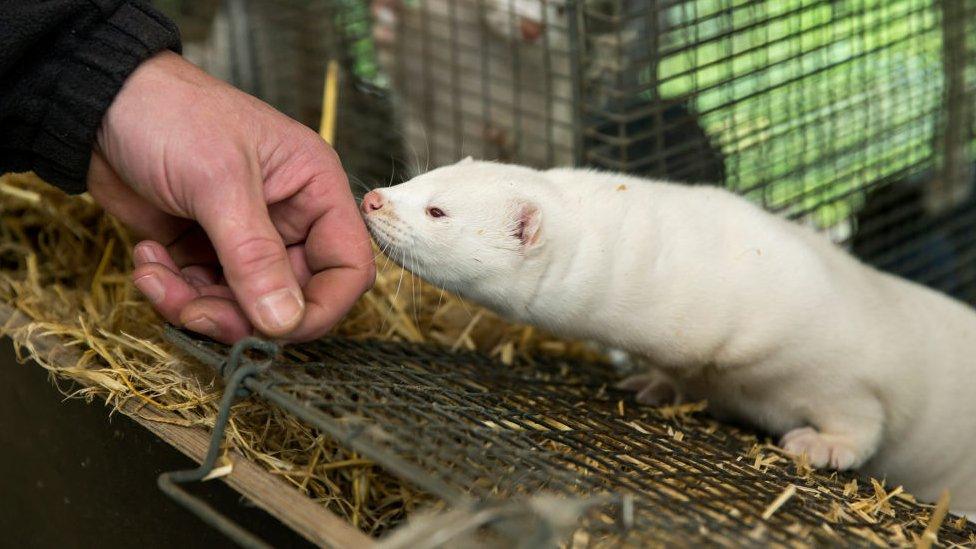Mutated coronavirus may 'jump back and forth' between animals
- Published
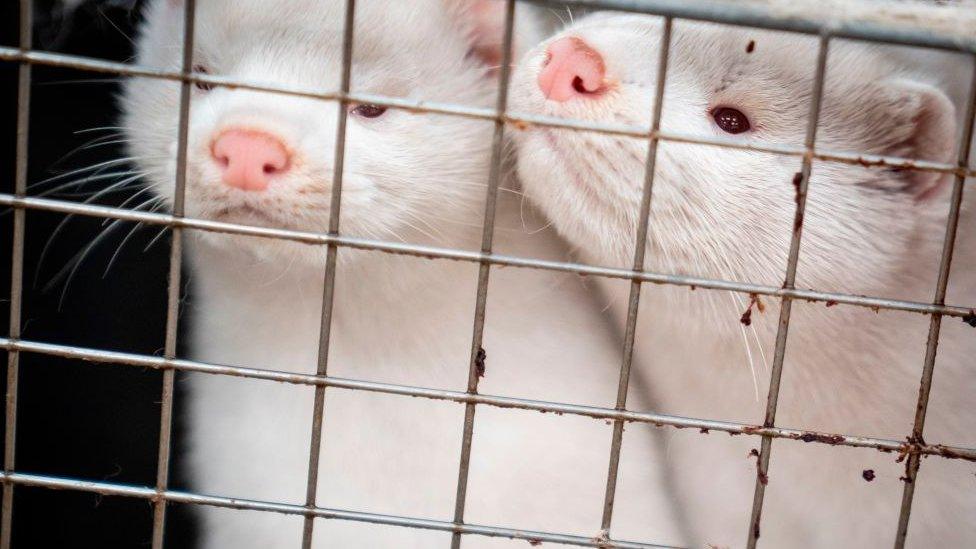
Coronavirus could potentially leap to other animals, such as rats, mice, ferrets and voles, as well as mink, an expert has warned.
The virus could then "come back in future years into the human population", said Sir Jeremy Farrar, director of the Wellcome Trust.
His comments came amid new warnings about the virus's evolution in mink.
The European Centre for Disease Prevention and Control said mink-to-human transmission could occur.
And continued spread of coronavirus (Sars-CoV-2) in mink farms may eventually give rise to other mutated forms, or variants, "of concern".
Further assessment was needed to assess whether mutated forms of the virus might hinder the effectiveness of treatments or vaccines, a new report, external concluded.
Nikolaus Kriz of the European Food Safety Authority, which contributed to the report, external, said: "While the risk of cross-border spread of these Sars-CoV-2 variants through animals and their products is very low, it is important that people avoid close contact with farmed mink.
"Additional surveillance measures are necessary to limit further spread."
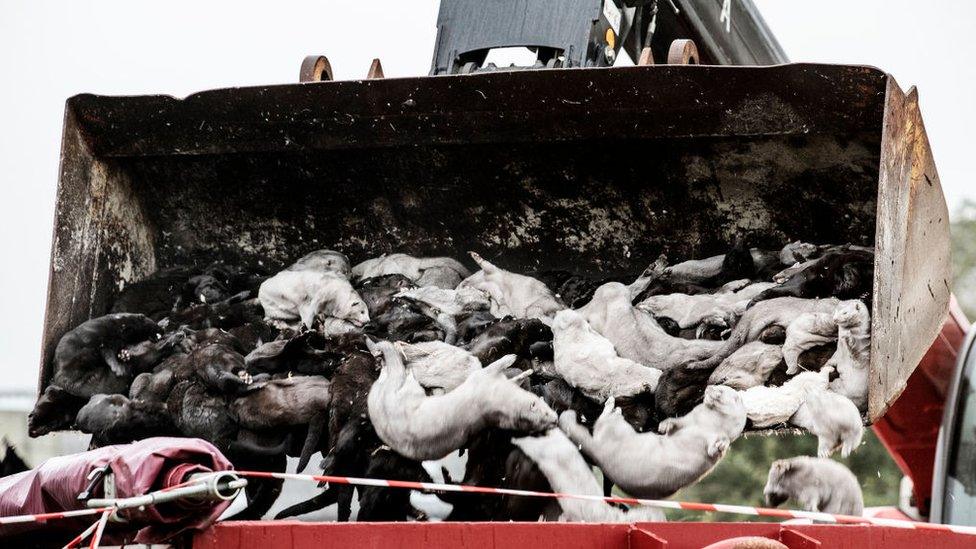
Millions of mink are being culled in Denmark
The risk of animals, such as mink, picking up the coronavirus and becoming a "reservoir" of infection has triggered international concern.
The World Organization for Animal Health (OIE) called on countries to monitor susceptible animals, such as mink and racoon dogs, as well as humans in close contact with them, amid concern about potential public health risks.
"The risk of susceptible animals, such as mink, becoming a Sars-CoV-2 reservoir generates worldwide concern, as it could pose a continued public health risk and lead to future spillover events to humans," the Paris-based organisation said in a statement, external.
Last week, Danish scientists raised the alert over mutations found in farmed mink they said might undermine the effectiveness of Covid-19 vaccines.
More than 200 people have been infected with mink-related coronavirus in Denmark, leading to a cull of millions of animals.
Why are the mutations causing concern?
Danish authorities worry that a mutated form of coronavirus found in farmed mink might hamper the effectiveness of future vaccines.
The government has ordered a mass cull of up to 17 million animals and a four-week lockdown for people living in the northwest of the country. There has been an outcry, with arguments over the legality of the cull.
Authorities in Denmark are particularly concerned about one mink-related type of the virus found in 12 people.
Its mutations involve a key part of the virus involved in immunity, the spike protein, which is the target of vaccines being developed.
Prof Anders Fomsgaard, head of virus research at the Statens Serum Institute in Copenhagen, recently told the BBC: "Mutation happens all the time, but once in a while these mutations happen in the spike protein.
"So we are a little nervous once we see mutations that change amino acids and the shape of this protein."
What's known about the risks?
Scientists in Denmark and elsewhere are attempting to assess the risks of the spread of coronavirus in mink farms.
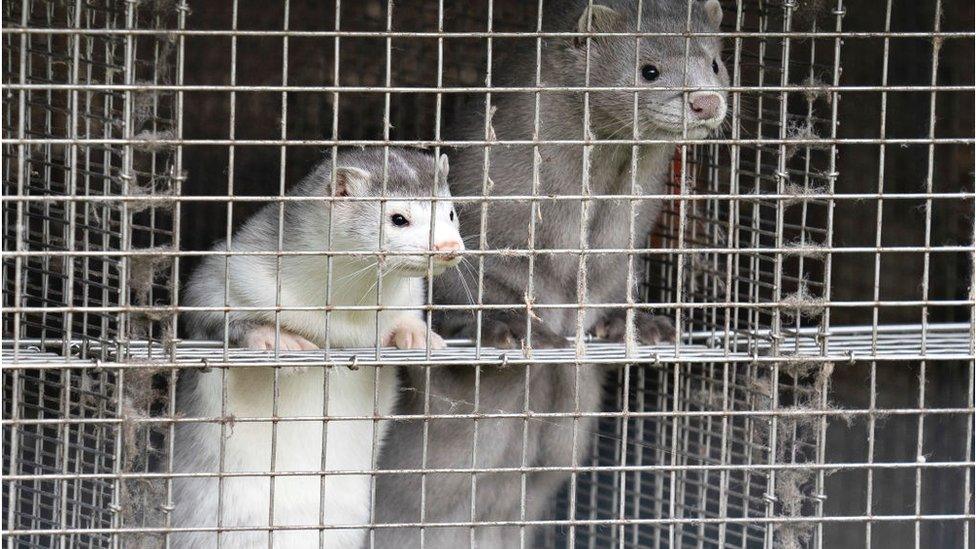
Mink outbreaks are a "spillover" from the human pandemic
The World Health Organization has said the reports are concerning, but further studies are needed to understand the implications for treatments and vaccines.
The worry about a vaccine is hypothetical so far, with further laboratory investigations being carried out.
Why are mink susceptible?
The coronavirus originally came from a wild animal, before being transmitted to humans, sparking the pandemic.
Infections have since arisen in farmed mink, which are kept in conditions where the virus can spread rapidly from animal to animal, and, occasionally, to people.
Mink, like their close relatives, ferrets, are known to be susceptible to coronavirus, and like humans, they can show a range of symptoms, from no signs of illness at all to severe problems, such as pneumonia.
Scientists suspect the virus spreads in mink farms through infectious droplets, on feed or bedding, or in dust containing droppings.
They fear mink have become "reservoirs for the virus" and say surveillance is required in other wild and domestic animals.
Outbreaks of coronavirus have been reported on fur farms in the Netherlands, Denmark, Spain, Sweden, Italy and the US.
The UK and Austria banned fur production years ago, while Germany has phased it out, with plans to end mink farming in Belgium, France and Norway.
The Netherlands is to end mink fur farming by spring next year.
Follow Helen on Twitter, external.
- Published11 November 2020
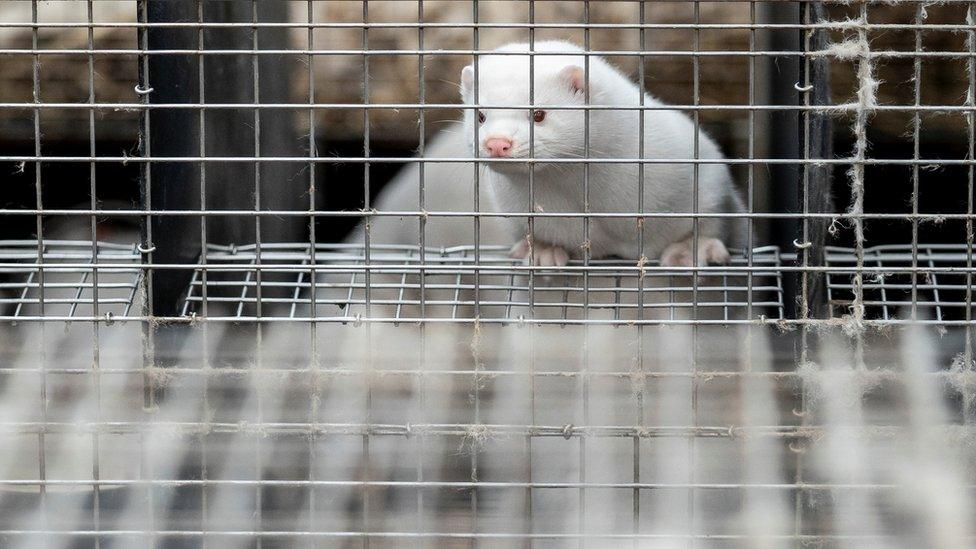
- Published9 November 2020
